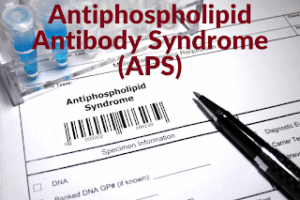Understanding Antiphospholipid Antibody Syndrome: Awareness Month Campaign
Antiphospholipid Antibody Syndrome (APS), a lesser-known yet significant autoimmune disorder, affects individuals globally. As part of raising awareness about this condition, the month of June is designated as Antiphospholipid Antibody Syndrome Awareness Month. Recognized by the color burgundy, this campaign aims to shed light on APS, its symptoms, diagnostic criteria, and available treatments.
 Antiphospholipid Antibody Syndrome Awareness Month Antiphospholipid Antibody Syndrome Awareness Month |
What is Antiphospholipid Antibody Syndrome?
Antiphospholipid Antibody Syndrome, often abbreviated as APS, is a systemic autoimmune disorder characterized by the presence of antiphospholipid antibodies (aPL) in the blood. These antibodies target phospholipid-binding proteins, leading to a range of clinical manifestations primarily associated with abnormal blood clotting.
When is Antiphospholipid Antibody Syndrome Awareness Month?
Antiphospholipid Antibody Syndrome Awareness Month takes place in June each year. It serves as a dedicated period to educate the public, healthcare professionals, and individuals affected by APS about the condition and its impact.
What is the Color for Antiphospholipid Antibody Syndrome Awareness Month?
Burgundy is the color associated with Antiphospholipid Antibody Syndrome Awareness Month. This deep red hue symbolizes solidarity with those affected by APS and signifies the importance of raising awareness to support research, advocacy, and improved patient care.
Support Antiphospholipid Antibody Syndrome (APS) Awareness Month with this burgundy campaign t-shirt. Raise awareness and show your solidarity with those affected by APS. Featuring the signature color of the campaign, this shirt is perfect for spreading knowledge and advocating for better understanding and treatment of APS.
|
|
| Antiphospholipid Antibody Syndrome Awareness Month |
What Are the Symptoms of Antiphospholipid Antibody Syndrome?
Antiphospholipid Antibody Syndrome can present with a diverse range of symptoms, which may include:
- Recurrent blood clots in veins or arteries
- Pregnancy complications such as recurrent miscarriages, stillbirths, or pre-eclampsia
- Skin manifestations like livedo reticularis (mottled discoloration)
- Neurological symptoms including strokes or transient ischemic attacks (TIAs)
- Cardiac complications such as heart attacks or valve abnormalities
Individuals with APS may experience one or more of these symptoms, and the severity can vary widely among patients.
What Are the Diagnostic Criteria for Antiphospholipid Antibody Syndrome?
The diagnosis of Antiphospholipid Antibody Syndrome typically involves meeting specific criteria, including the presence of antiphospholipid antibodies detected through blood tests on two or more occasions at least 12 weeks apart. Additionally, clinical manifestations such as blood clots or pregnancy complications are considered in conjunction with laboratory findings.
The key diagnostic criteria for APS include:
- Positive tests for lupus anticoagulant, anticardiolipin antibodies, or anti-beta2-glycoprotein I antibodies on two or more occasions at least 12 weeks apart.
- Vascular thrombosis (arterial or venous) or pregnancy complications associated with antiphospholipid antibodies.
Awareness and Education: Vital Steps in Combatting APS
As Antiphospholipid Antibody Syndrome continues to impact individuals worldwide, raising awareness about this condition is paramount. By understanding the symptoms, diagnostic criteria, and available treatments, individuals can seek timely medical attention, leading to improved management and outcomes.

